Molecular and Systems Oncology Group
Dr Paul Huang’s group aims to understand how networks of signalling-proteins control tumour progression and drug resistance in cancer.
Our group seeks to understand the underlying reasons as to why tumours go on to develop resistance and find new ways to effectively treat patients who relapse as a result of acquired drug resistance.
Professor Paul Huang
Group Leader:
Molecular and Systems Oncology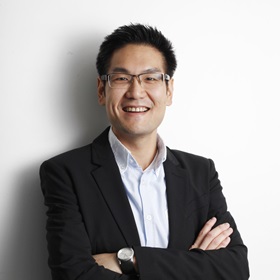
Professor Paul Huang uses systems biology and molecular pathology to study drug resistance in sarcomas and lung cancer. He trained at Imperial College London and Massachusetts Institute of Technology, and was awarded a Sir Henry Wellcome Fellowship in 2009 and a Cancer Research UK Career Establishment Award in 2015.
Researchers in this group
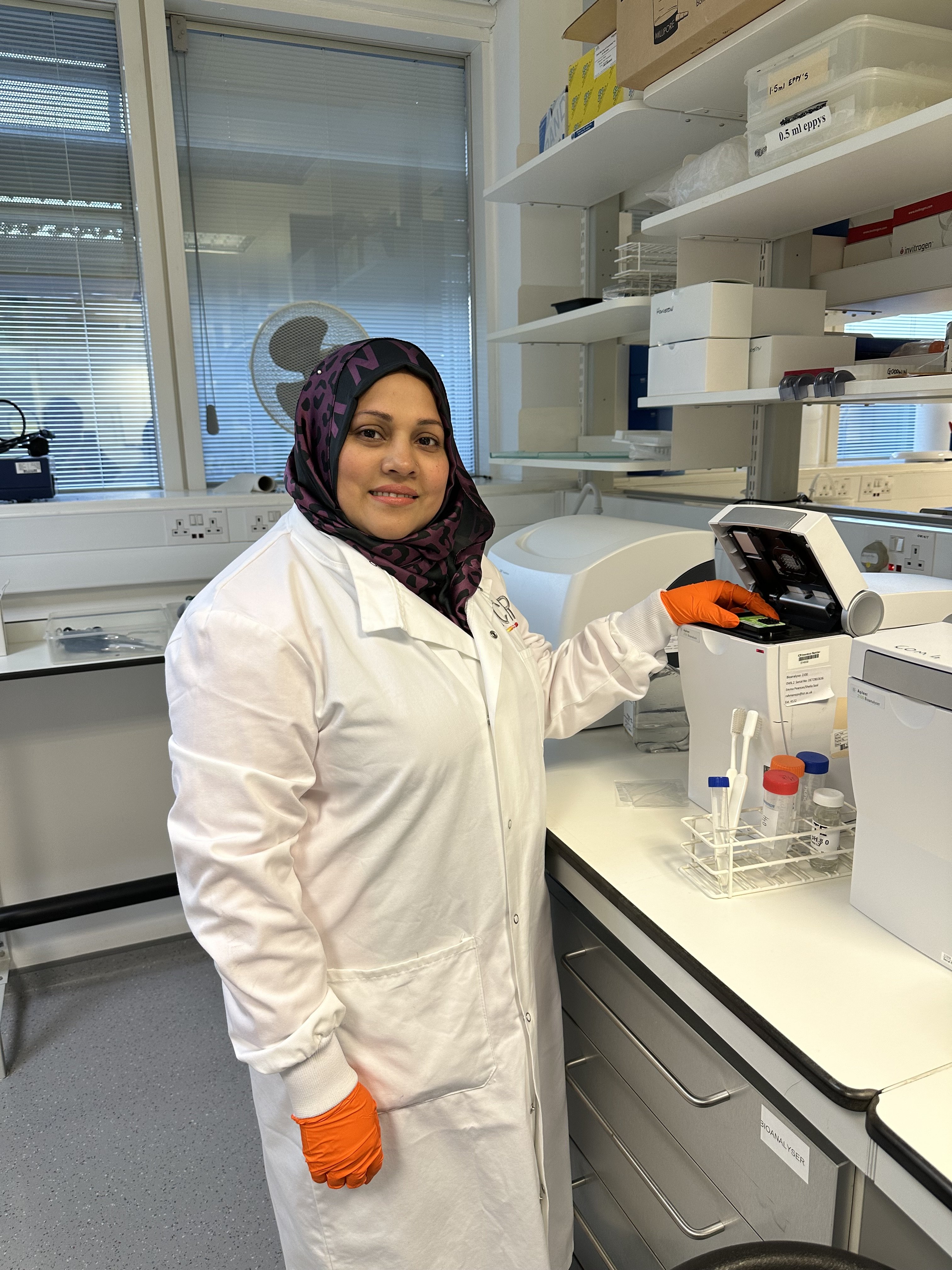 .
.
I am a higher scientific officer. My work involves Nanostring gene expression analysis to establish molecular signatures or biomarkers for targeted therapy response in sarcoma trials.
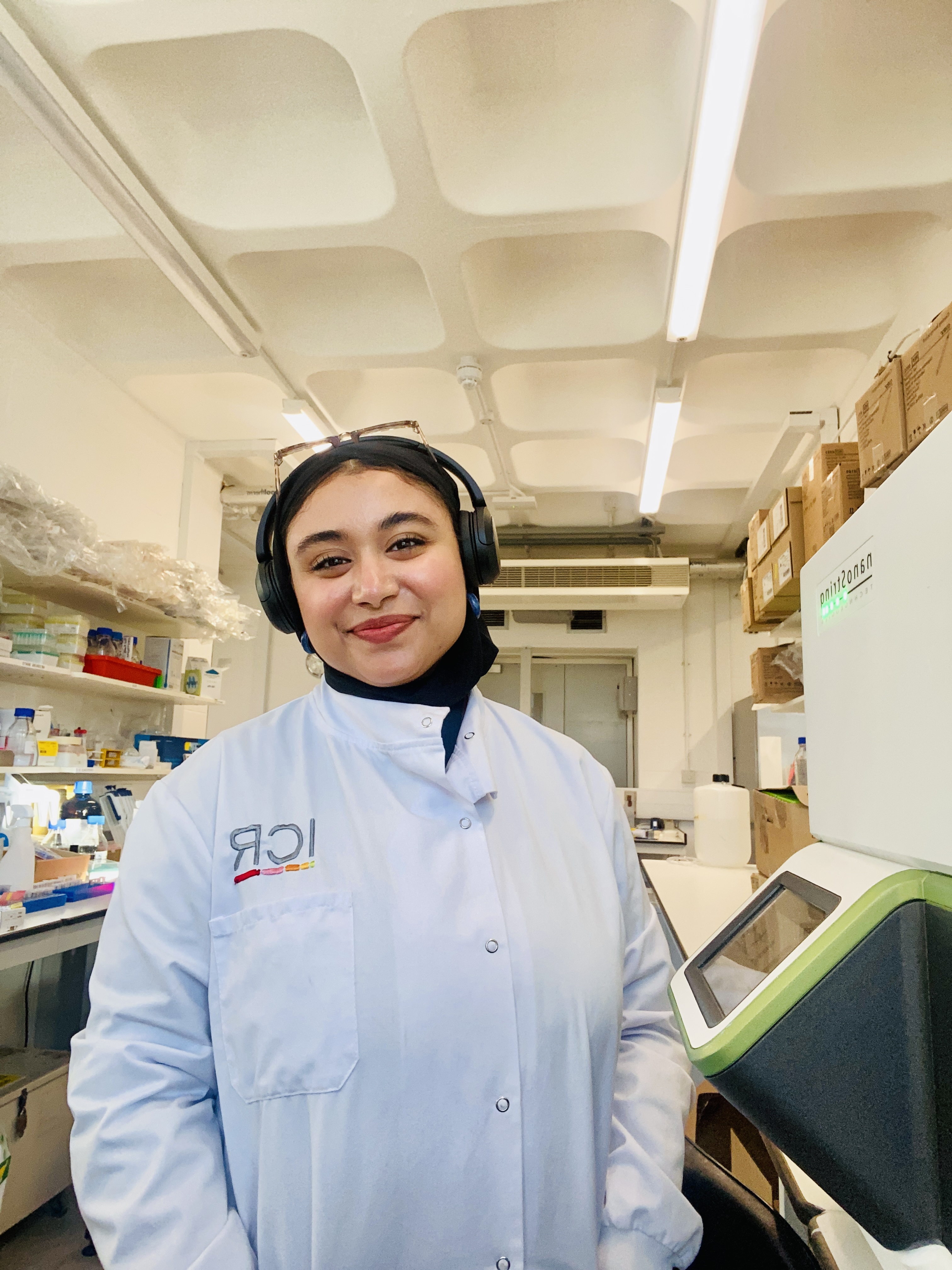 .
.
Email: [email protected]
Location: Sutton
I am PhD student focusing on understanding angiosarcomas. My work involves molecular profiling of angiosarcoma patient samples to better understand mechanisms of treatment response and resistance and identify potential biomarkers.
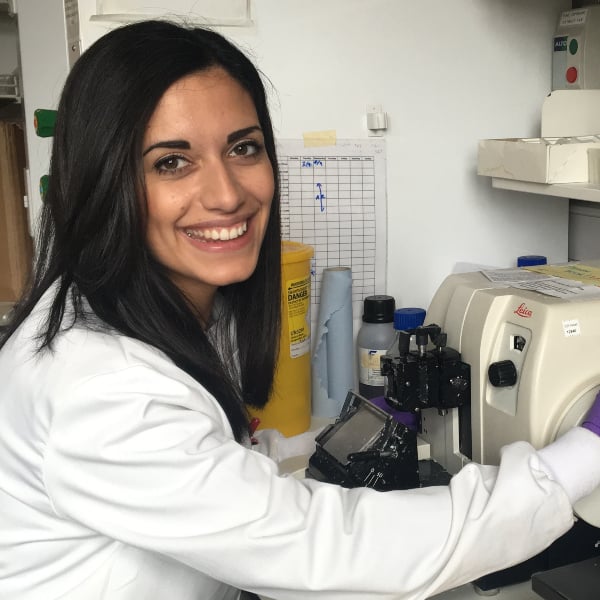 .
.
Email: [email protected]
Location: Sutton
I am currently working on utilising radiogenomics to understand heterogeneity and therapy response in soft tissue sarcoma, and whether combining imaging and molecular data can improve patient outcomes.
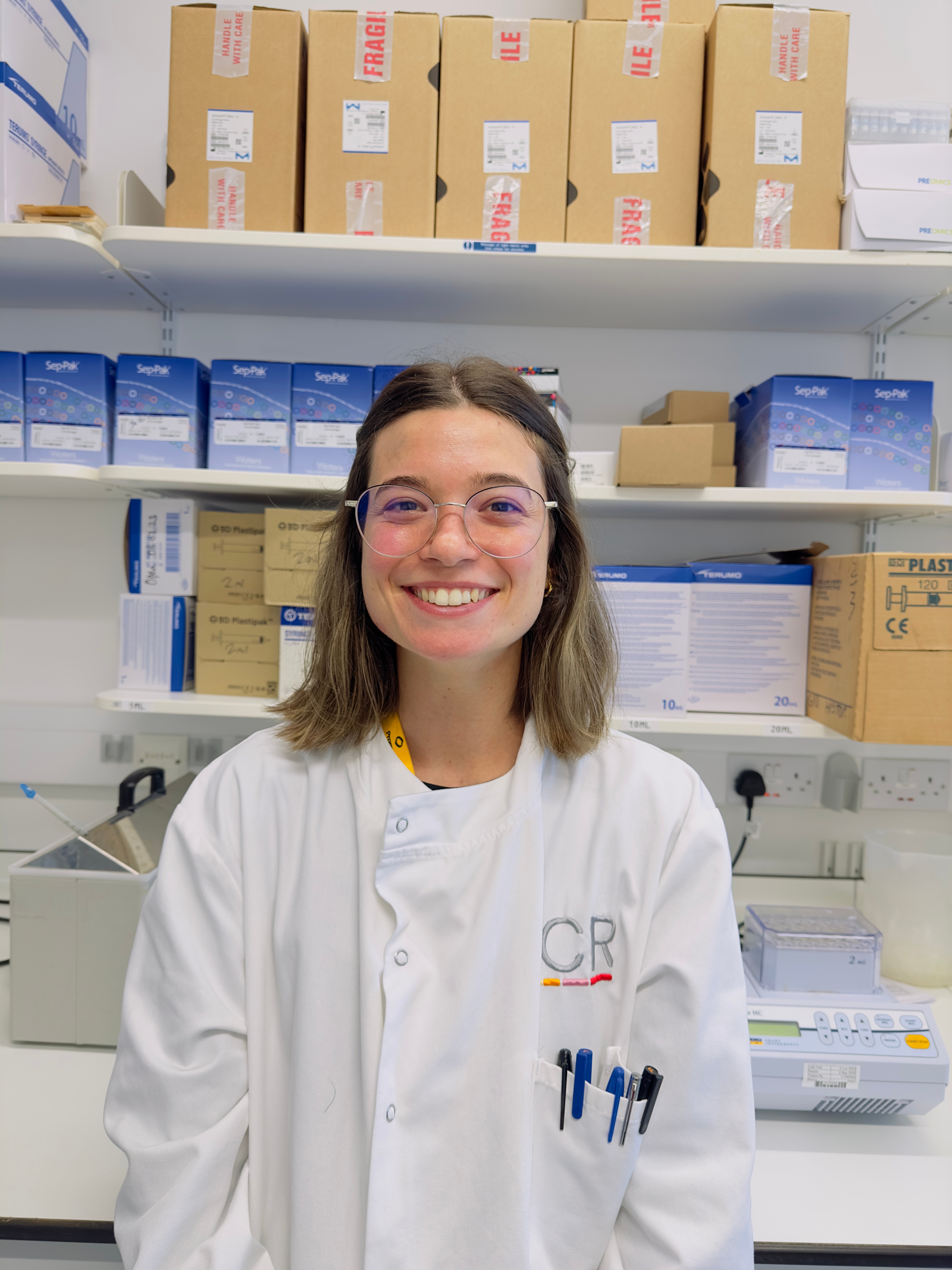 .
.
Email: [email protected]
Location: Sutton
I'm a PhD student from Turin, Italy, and my project focuses on leiomyosarcoma, an aggressive soft tissue sarcoma subtype. My aim is to use RNA sequencing and proteomics to understand evolution of localised to metastatic disease with the goal of identifying new therapies for patients.
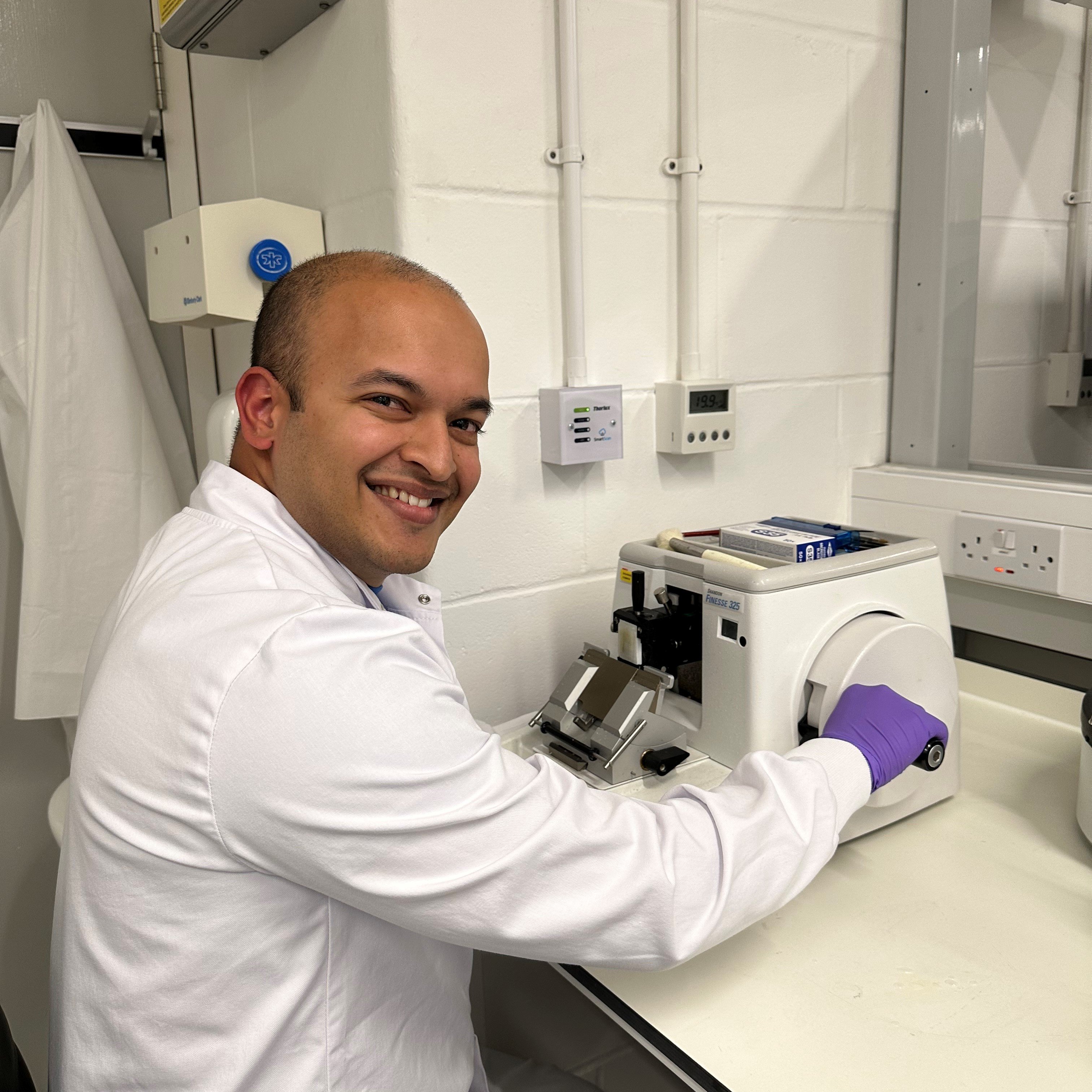 .
.
My research aims to identify candidate biomarkers for improving neoadjuvant therapy in high-risk soft tissue sarcomas. This convergence science project uses an explant-in-chip model developed by the Overby group, our collaborators at Imperial College London.
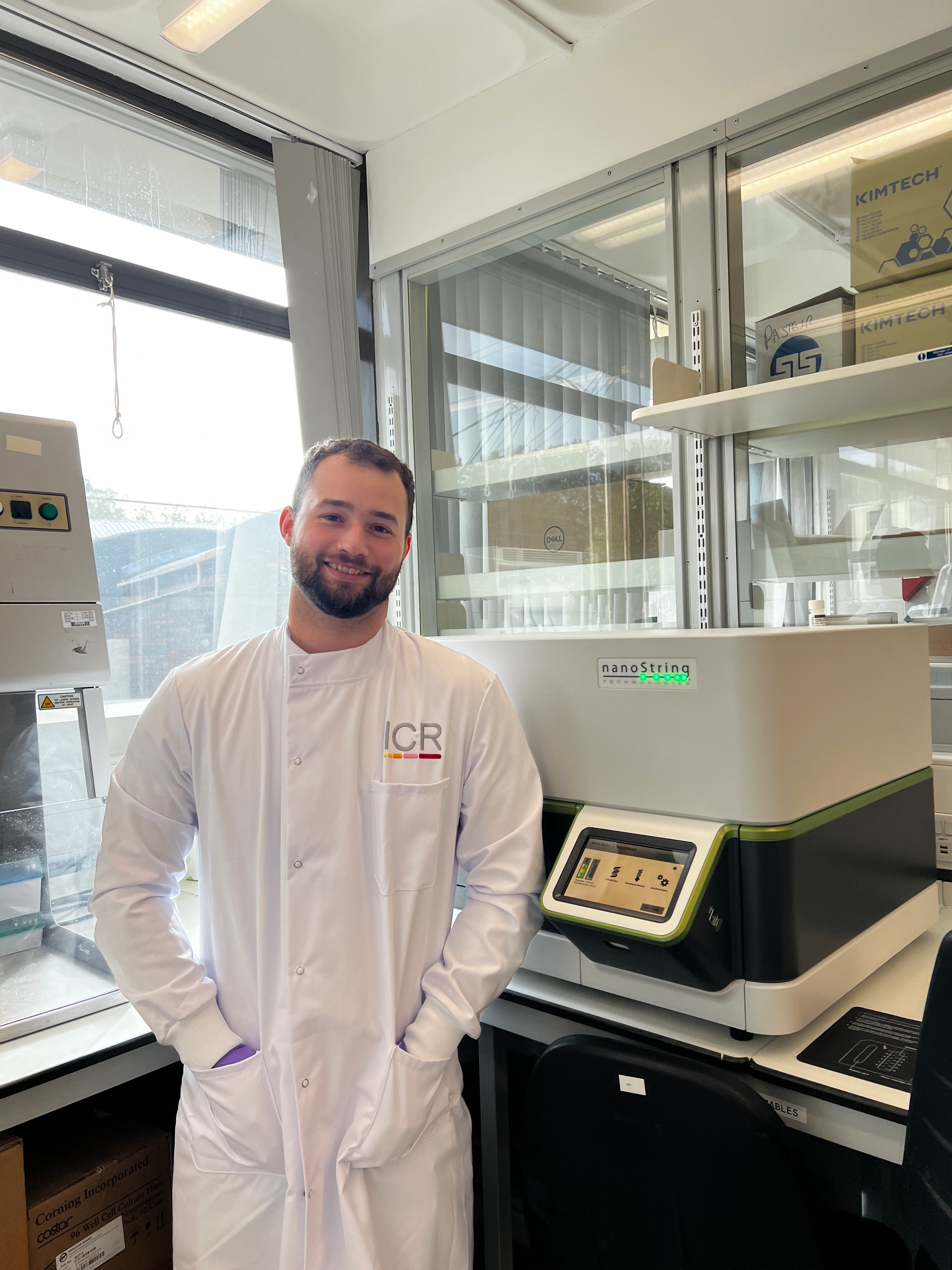 .
.
Email: [email protected]
Location: Sutton
I'm a first year PhD student. My research is interested in developing spatial proteomic sampling techniques to better understand intratumoral heterogeneity within soft tissue sarcomas.
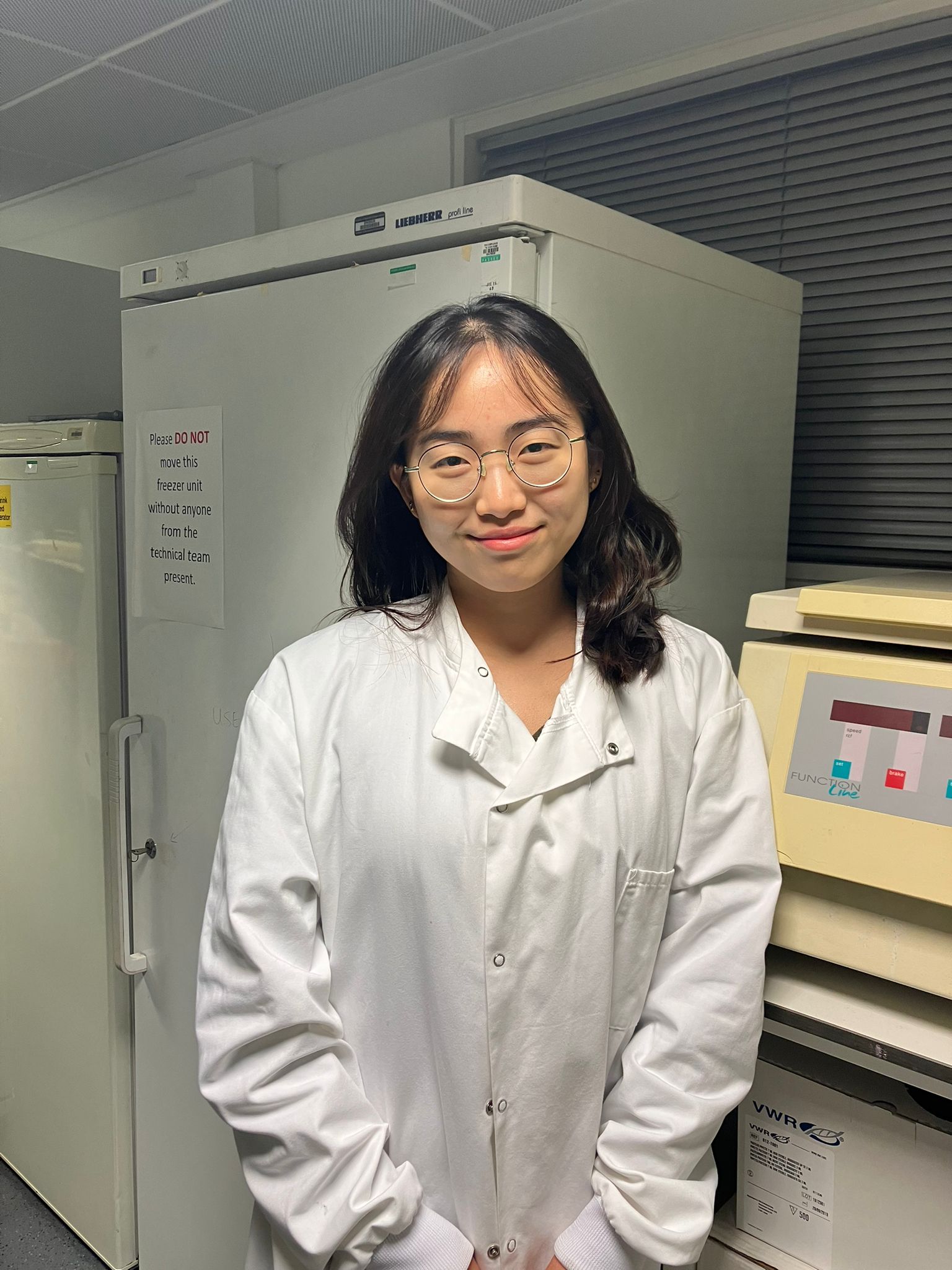 .
.
Email: [email protected]
Location: Sutton
I am a PhD student co-supervised by Dr Sam Au at Imperial College London. My project is on developing a microfluidic chip to study how extracellular matrix components affect tumour cell behaviour during metastatic colonisation in the lung, with a focus on using hydrogels to mimic the tumour microenvironment.
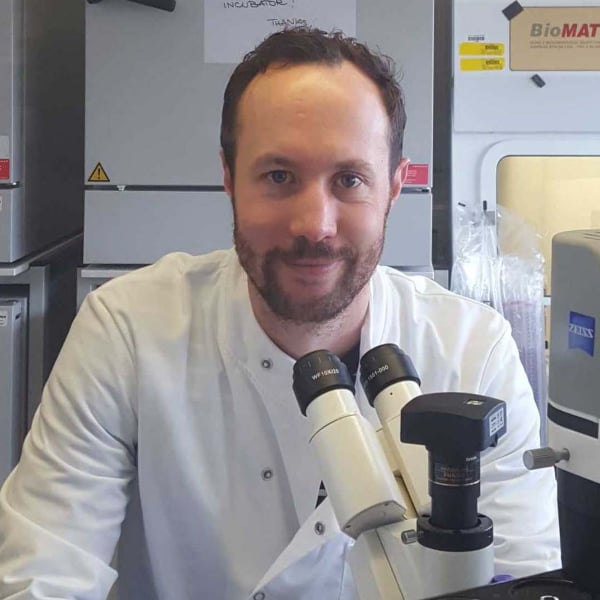 .
.
Email: [email protected]
Location: Sutton
I began my postdoctoral career at the ICR in 2015. Initially working for the Signal Transduction Team (Barbara Tanos) and subsequently joining the Molecular and Systems Oncology Team in 2018. My current research is focused on understanding sub-clonal interactions and tumour heterogeneity driving EGFR inhibitor resistance in lung cancer.
.jpg?sfvrsn=faf78b2_4) .
.
Email: [email protected]
Location: Sutton
I am a first-year PhD student split between Imperial College London (Ishihara lab) and the Institute of Cancer Research (Huang lab). My research will be focused on the bioengineering and development of immunomodulatory agents designed to target the extracellular matrix as a novel therapeutic strategy to treat sarcoma.
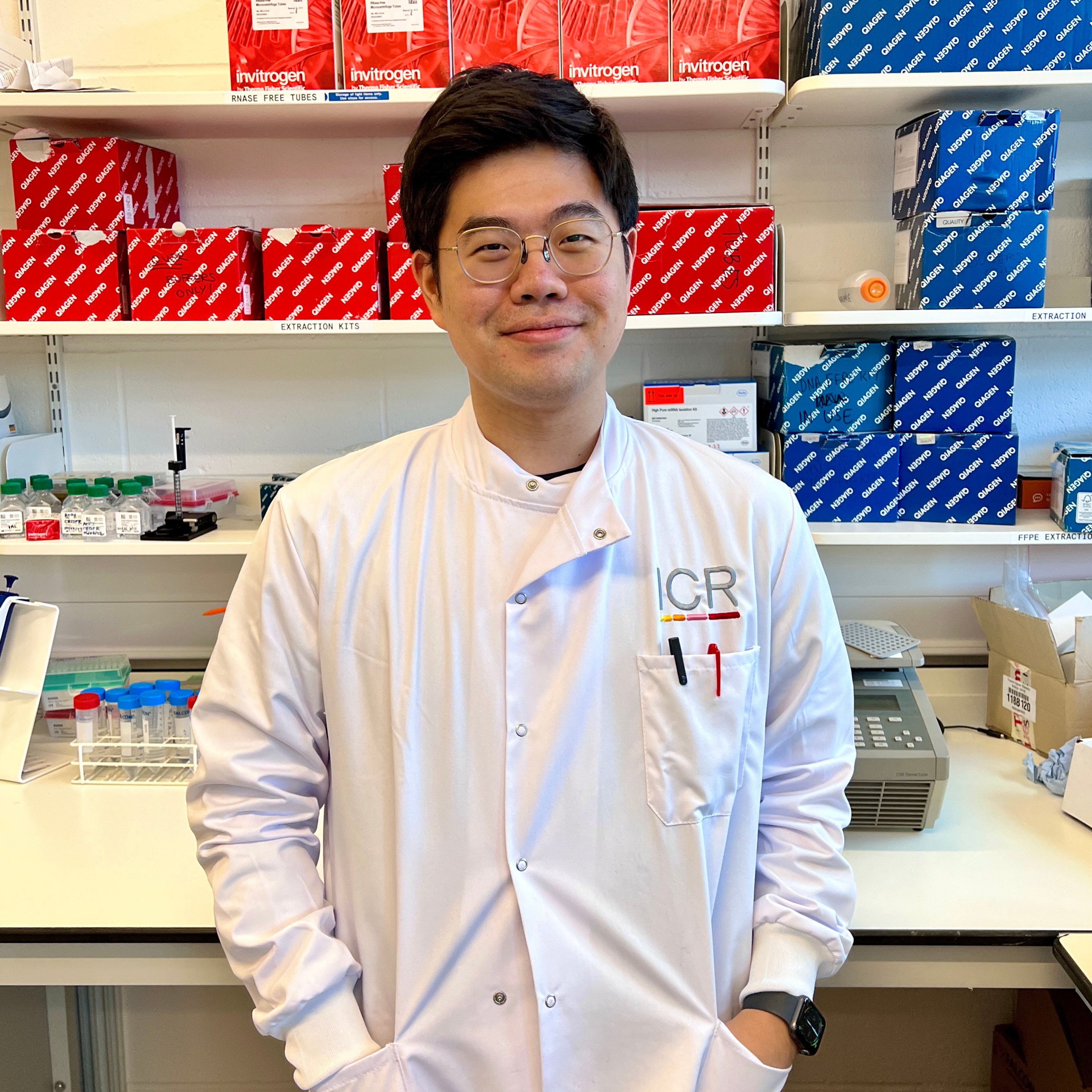 .
.
I am a Higher Scientific Officer currently investigating the drug resistance mechanisms in lung cancer patients with EGFR Exon20 insertion mutations using gene editing approaches such as CRISPR-Cas9.
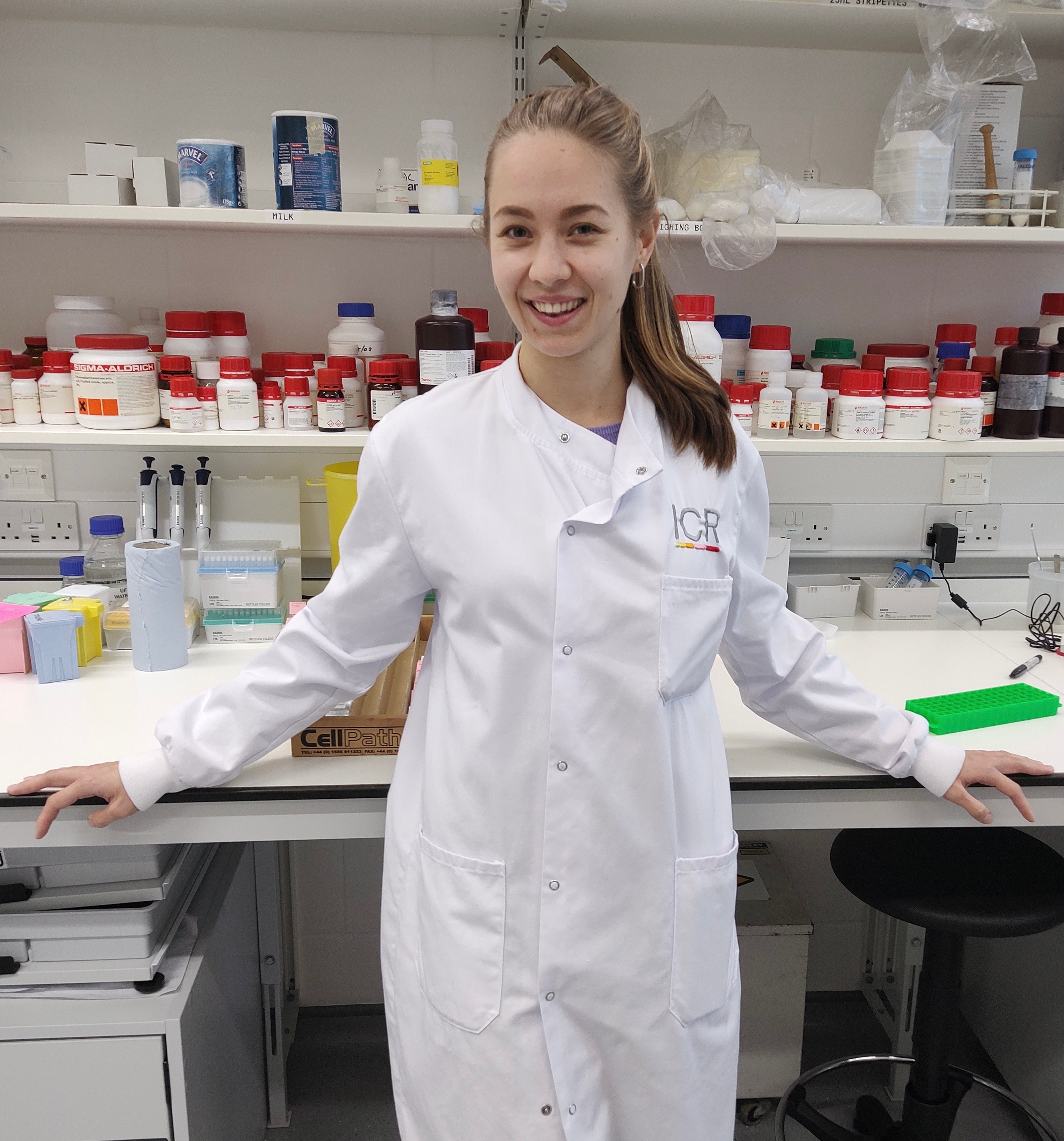 .
.
I’m Valeriya, a post doctoral researcher. I’m analysing matrisome and adhesome of leiomyosarcoma and using leiomyosarcoma-specific models of extracellular matrix to identify the drives of metastasis, in search for new drug targets.
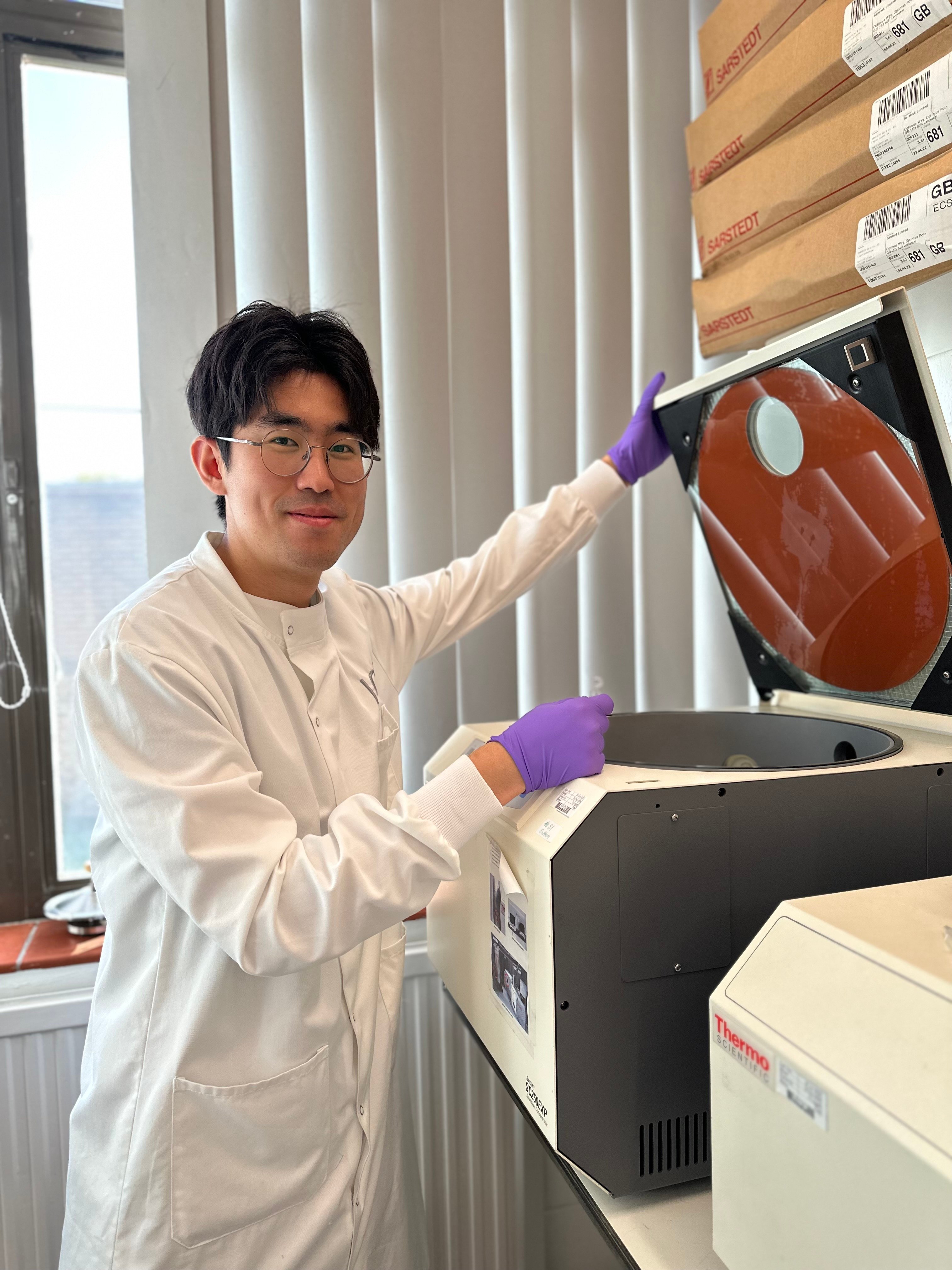 .
.
Email: [email protected]
Location: Sutton
I am a PhD student working to understand the mechanisms of response and resistance in alveolar soft part sarcoma to the TKI cediranib, with the aims of identifying new biomarkers and therapeutic strategies to improve patient outcome.
Professor Paul Huang's group have written 141 publications
Most recent new publication 3/2025
See all their publicationsSarcoma
Soft tissue sarcomas (STS) are a group of rare cancers that originate from supporting and connective tissue such as fat, muscle and blood vessels. This is a complex and highly diverse group of tumours that consists of more than 70 different types and can be found anywhere in the body. This complexity makes it challenging to effectively treat these cancers and outcomes for patients with advanced disease remain very poor.
Working closely with The Royal Marsden Sarcoma Unit (led by Dr Robin Jones), one of the largest specialist sarcoma treatment centres in Europe, the laboratory is currently focused on the following projects:
- Proteomic profiling of STS in large retrospective series, clinical trials of targeted agents and rare sarcoma entities. We also lead on the proteomic analysis of sarcoma cases from the 100,000 Genomes Project as part of the Sarcoma Genomic England Clinical interpretation Partnership (GeCIP).
- Resistance to targeted therapies including investigating clinical and preclinical mechanisms of drug resistance to kinase inhibitors such as pazopanib, regorafenib and cediranib, with a view to developing strategies to overcome resistance and achieve durable drug responses in patients.
- Patient-derived model development for drug screening and mechanistic studies of therapy resistance in STS with a focus on developing models for common and rare sarcoma entities, lung metastasis and paired pre- and post-treatment tumours.
- Prognostic and predictive biomarkers for patient stratification and early detection to deliver targeted therapy to patients likely to receive benefit while sparing those unlikely to respond to treatment from unnecessary side effects.
Lung cancer
Lung cancer is the largest cancer killer worldwide and contributes to 20% of all cancer deaths. Targeted therapies are routinely used for selected molecular subtypes of lung cancer such as those driven by mutant EGFR and ALK fusions.
However, tumours can find ways to overcome the effects of these drugs and rapidly acquire resistance leading to inevitable relapse in all patients within a year of treatment.
Our research in lung cancer focuses on understanding how tumours evolve to acquire drug resistance and develop strategies to tackle resistance to achieve lasting drug responses in patients.
Current project include:
- Signalling mechanisms of resistance to EGFR inhibitors. Funded by Cancer Research UK, we are using molecular and chemical profiling strategies to identify mechanisms of intrinsic and acquired resistance to EGFR inhibitors including uncovering new signalling dependencies in mutant EGFR-driven lung cancers.
- Intratumoural heterogeneity and subclonal interactions. We are exploiting proteomics and phosphoproteomics to investigate the signalling pathways driving subclonal interactions and tumour evolution in response to targeted therapy. Unpicking these signalling mechanisms may aid in the development of new salvage therapies for patients who develop acquired drug resistance.
- Characterising exceptional response to targeted therapy. A small number of individuals, known as “exceptional responders”, show remarkable sensitivity and durable response to cancer treatment. We study and model such exceptional response in the laboratory to uncover mechanisms that confer long-term sensitivity to targeted agents.
Developing resistance to cancer drugs remains one of the biggest contributors to cancer deaths worldwide. Solving this problem will bring us one step closer to improving cure rates in patients.
The Molecular and Systems Oncology Group seeks to understand the underlying reasons as to why tumours go on to develop resistance and find new ways to effectively treat patients who relapse as a result of acquired drug resistance.
In doing so, we also aim to discover more accurate methods to stratify and predict which patients are likely to receive long-term benefit from therapy as a first step towards the development of companion diagnostics.
To address this problem, our laboratory concentrates on two interrelated areas of precision cancer medicine: (1) targeted therapy and drug resistance and (2) translational proteomics.
Focusing on sarcomas and lung cancers, two cancer types with particularly poor patient outcomes, we have a track record in the successful use of next generation proteomic profiling to deliver new strategies for combating drug resistance and identifying robust predictive and prognostic biomarkers.
Working in partnership with our clinical collaborators at the The Royal Marsden NHS Foundation Trust and other oncology centres worldwide, we lead on translational studies for several clinical trials of novel drug agents in sarcomas and lung cancer.
Our ultimate goal is to deliver an individualised approach to treatment and improve the long-term outcomes in sarcoma and lung cancer patients who currently have a poor prognosis.
 .
.


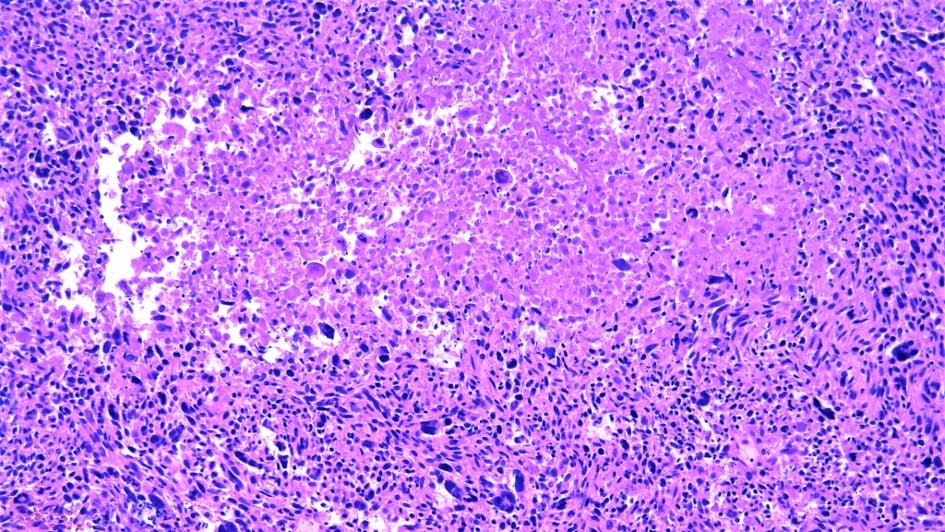
-by-yale-rosen-547x410.jpg?sfvrsn=1e0887c9_2)